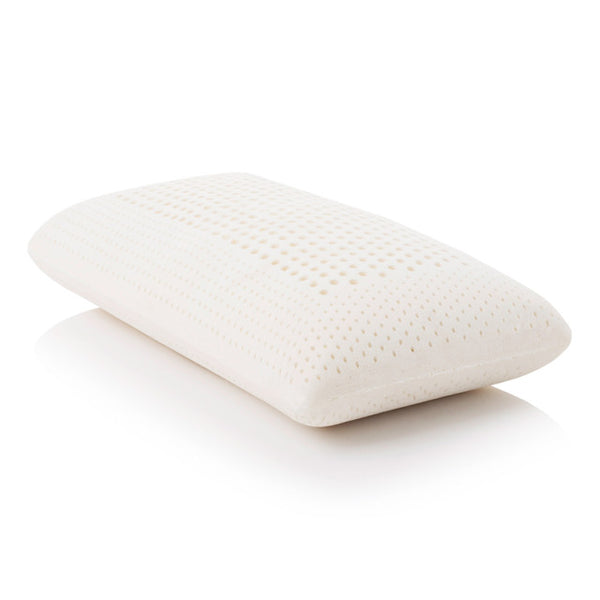
Frequently Asked Questions
1. How does sleep affect mental health?
2. What is sleep hygiene and why is it important?
3. What role does stress play in sleep quality?
4. What are some common mental health issues linked to sleep deprivation?
5. How can mindfulness techniques improve sleep?
In a world that never seems to stop, where the pressures of daily life can overwhelm our senses, we often overlook the crucial connection between sleep and mental health. Many people underestimate the impact of a good night’s sleep on their emotional and psychological well-being. This post will dive deep into the various ways sleep influences our mental health and offer insights on how to prioritize restful nights for happier days.
The Science Behind Sleep and Mental Health
Sleep is not just a time for our bodies to recharge; it's a complex process that plays a fundamental role in maintaining various cognitive functions and emotional stability. Studies have shown that sleep affects different aspects of our mental health in numerous ways.
How Sleep Modulates Emotions
Research highlights that inadequate sleep can alter emotions and disrupt our ability to respond to stress. During deep sleep, brain activity shifts, which helps in processing and filtering emotional experiences. This stage of sleep is essential for emotional regulation—our ability to manage feelings and navigate daily challenges.
In contrast, those who experience poor sleep quality often report heightened irritability, anxiety, and mood swings. Lack of sleep can skew our perceptions, making even minor stressors feel monumental.
Stress and Sleep: A Vicious Cycle
The relationship between stress and sleep is cyclical. When you're stressed, falling asleep may prove difficult, leading to insufficient rest. The next day, you feel more stressed due to fatigue, and the cycle continues. Understanding this cycle is critical for anyone looking to improve their mental health.
Common Mental Health Issues Linked to Sleep Deprivation
A range of mental health conditions are closely tied to sleep disturbances. Below are some of the most prevalent:
- Anxiety Disorders: Insufficient sleep can exacerbate anxiety symptoms. Those suffering from anxiety may find that their minds race at night, making relaxation nearly impossible.
- Depression: There is a strong correlation between sleep disturbances and depression. Many individuals battling depression experience insomnia, making it crucial to address sleep issues in treatment plans.
- ADHD: Sleep deprivation can intensify symptoms of ADHD, affecting concentration and impulse control. Adequate sleep can significantly help in managing attention spans and emotional reactions.
- Bipolar Disorder: Sleep patterns often fluctuate in individuals with bipolar disorder. Understanding and managing sleep can play a critical role in stabilizing mood changes.
Improving sleep hygiene is a fundamental step to ensuring better sleep, and subsequently, better mental health. Sleep hygiene refers to a set of practices and habits that are necessary for good nighttime sleep quality. Here are some practical tips to get started:
Establish a Consistent Sleep Schedule
Going to bed and waking up at the same time each day helps regulate your body’s internal clock. This predictability not only enhances sleep quality but also positively affects mental health by instilling a sense of routine and discipline.
Create a Restful Environment
Your bedroom should be a sanctuary. Consider the following:
- Make your bedroom dark, quiet, and cool. These environmental factors promote deeper sleep.
- Invest in a comfortable mattress and pillows. Your body deserves the best support for recovery.
- Limit exposure to screens before bedtime. The blue light emitted by electronic devices can disrupt melatonin production, making it harder to fall asleep.
Pay Attention to Your Diet
What you consume can greatly impact your sleep. Here are some dietary tips:
- Avoid caffeine and nicotine close to bedtime, as they can keep you awake.
- Limit large meals and heavy snacks before sleep. Digestion can interfere with your ability to fall and stay asleep.
- Consider light, sleep-promoting snacks, such as bananas or almonds, before bedtime to support your sleep needs.
The Importance of Mindfulness and Relaxation Techniques
In addition to physical sleep hygiene, incorporating mindfulness and relaxation techniques can significantly enhance both the quality of sleep and mental health. Engaging in calming practices before bed can signal to your body that it’s time to wind down.
Meditation and Deep Breathing
Practicing mindfulness meditation and deep breathing exercises can quiet the mind and alleviate anxiety. Setting aside just a few minutes each night to focus on your breath can lead to profound relaxation and prepare your body for sleep.
Journaling
Scribbling your thoughts onto paper can be a therapeutic act. Journaling allows you to process your feelings and may help alleviate anxiety. Consider writing down your worries, what you are grateful for, and any thoughts distracting you from a good night's sleep.
The Double-Edged Sword: Sleep Medications
While some may turn to sleep medications to help aid rest, it’s crucial to understand their implications on mental health. While these medications may offer short-term relief, they can also lead to increased feelings of anxiety and dependency. It’s vital to consult with a healthcare professional regarding the best course of action.
Understanding Sleep Disorders
If you continue to experience sleep disturbances, it may be worth exploring the possibility of sleep disorders. Conditions such as insomnia, sleep apnea, and restless leg syndrome can significantly affect both sleep quality and mental health.
Recognizing the Signs
Knowing the signs of sleep disorders can be your first step to better mental health. Look out for:
- Difficulty falling and staying asleep.
- Excessive daytime sleepiness.
- Snoring or gasping for breath during sleep.
- Uncomfortable sensations in the legs, compelling you to move.
Seeking Professional Help
If you suspect a sleep disorder might be affecting your health, consult a healthcare provider or a sleep specialist who can guide you through appropriate assessments and treatment options.
Finding the Balance: Sleep, Mental Health, and Daily Life
Making conscious decisions to prioritize sleep can have a ripple effect on your entire life. Achieving a balance between restful sleep and mental health management can lead to improved productivity, better relationships, and an overall enhanced quality of life.
Empowering Yourself for Better Sleep
Empower yourself with knowledge and practice. Set tangible goals for your sleep habits: track your sleep patterns, set sleep goals, and be mindful of how your daily choices impact your nightly rest. Maintaining good sleep hygiene will not only benefit your sleep health, but it will also positively feed into your mental health.
Brightening Your Mind: The Path Ahead
Understanding the profound connection between sleep and mental wellness is the first step in improving your life holistically. By making informed choices about your sleep habits, you can enrich your mental health, emotional resilience, and overall well-being. Embrace the journey to better sleep and brighter mental health; your mind will thank you for it!
Take a moment to explore another user's Shopify or Wix store. Visit their store through this link. Please be aware that this is a promotional link, and we cannot be held responsible for the content of the linked store.









